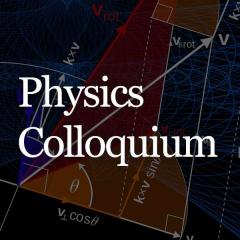Unlocking the power of photonics through inverse design and heterogeneous integration
Speaker: Professor Jelena Vuckovic
Affiliation: Stanford University
Abstract
Recent breakthroughs in photonics design, along with new nanofabrication approaches and heterogeneous integration play crucial roles in building photonics for applications including optical interconnects and quantum technologies. The implementation of scalable quantum systems is the most dramatic example of this effort, as it requires new photonic materials and device functionalities, together with stringent device performances. Towards this goal, the platforms based on color centers in diamond and silicon carbide have been considered promising candidates, because of their optically interfaced spin qubits, high speed and high fidelity quantum gates, and high quality photonics. While these platforms have usually been studied in the context of quantum networking, recent demonstration of coherent interactions of multiple qubits inside a single silicon carbide resonator has established this system as a promising candidate for quantum simulation and possibly even quantum computing.
However, truly scalable systems require integration of all passive and active photonic devices on the same chip, including sources. Following the same advances in design, fabrication, and heterogenous integration, even Titanium:sapphire laser, the workhorse of optics laboratories, can be miniaturized into sub-cubic centimeter volume together with its pump, and without any loss of performance.
Biography:
Jelena Vuckovic (PhD Caltech 2002) is the Jensen Huang Professor in Global Leadership in the School of Engineering, and Professor of Electrical Engineering and by courtesy of Applied Physics at Stanford, where she leads the Nanoscale and Quantum Photonics Lab. She was the inaugural director of Q-FARM, the Stanford-SLAC Quantum Science and Engineering Initiative, and the Fortinet Founders Chair of the Electrical Engineering Department at Stanford. Vuckovic has received many awards and honors including recently the Geoffrey Frew Fellowship from the Australian Academy of Sciences, the Vannevar Bush Faculty Fellowship, the Mildred Dresselhaus Lectureship from MIT, the James Gordon Memorial Speakership from the OSA, the IET A. F. Harvey Engineering Research Prize , Distinguished Scholarship of the Max Planck Institute for Quantum Optics, the Hans Fischer Senior Fellowship from the Institute for Advanced Studies in Munich, and the Humboldt Prize. She is a member of the National Academy of Sciences (NAS), Fellow of the APS, of the Optica, and of the IEEE, and an associate editor of the ACS Photonics.
About Physics colloquium
The Physics Colloquium series hosts a range of speakers from Australia and abroad. The series explores a variety of topics and everyone is welcome to come along. The seminars are open so there is no need to register your attendance.
If you would like to sign up for colloquium announcement emails, you can join the mailing list by sending a blank email to:
- For UQ email addresses: physics-colloquium-others-join@lists.science.uq.edu.au
- For non-UQ email addresses: physics-announce-external-join@lists.science.uq.edu.au
(Note: if you receive physics-all emails, you should already receive these and don't need to sign up again).
Venue
Room: 222

